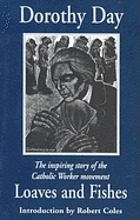 Go to the Worker
by
Kimball Baker
OC Go to the workerOCOOCothat was the central message of the Catholic social-action movement which flourished in the United States from the mid-1930s to the mid-1950s. And, according to a book by that title recently published by Marquette University Press, the message is as fresh and powerful today as it was in the Great Depression to which this movement responded. OC Go to the WorkerOCO: AmericaOCOs Labor Apostles, by historian Kimball Baker, tells the movementOCOs story by profiling 10 of the movementOCOs leaders, and traces the origins of the movement. These include Catholic social teachings (OC Go to the workerOCO was initially a directive in several papal encyclicals, or letters); Dorothy Day and her Catholic Worker movement; the ideas of social, industrial and political democracy; and worldwide social-justice stirrings within the Society of Jesus, or Jesuits. All these influences came together, the book says, in the 1930s, a time when unrestrained capitalism had brought the U.S. economy to its knees. The result was many Catholic priests and laypeople forming a national worker-justice movement based upon its membersOCO belief that helping workers organize and bargain collectively was just as much of a spiritual calling as feeding the hungry. The movement operated ecumenically. It cooperated with worker advocates from all faiths and helped workers from all backgrounds. It fought for worker justice side by side with organized labor, especially the industrial unions which came on in the mid-1930s, and together these advocates and unions gained passage of the National Labor Relations Act of 1935. Within a decade, the proportion of American workers organized went from less than one tenth to about a third. Underlying the Catholic social-action movementOCOs central message, Baker says, was the conviction that every economic activity is subject to moral law. It was on this basis, for example, that Monsignor George Higgins, one of the bookOCOs chapter subjects, criticized the Taft-Hartley Act of 1947 as OC unfair and unworkable.OCO Since its enactment, the proportion of U.S. workers organized is back to about one tenth. OC In the current economic crisis, American workers are becoming more and more aware that they need to organize to be strong, OCO Baker contends. OC Hopefully OCyGo to the WorkerOCO will give them and their advocates an encouraging boost in dealing with the Great Recession, in which the adverse affects of unrestrained capitalism are once again on full display.OCO"
Go to the Worker
by
Kimball Baker
OC Go to the workerOCOOCothat was the central message of the Catholic social-action movement which flourished in the United States from the mid-1930s to the mid-1950s. And, according to a book by that title recently published by Marquette University Press, the message is as fresh and powerful today as it was in the Great Depression to which this movement responded. OC Go to the WorkerOCO: AmericaOCOs Labor Apostles, by historian Kimball Baker, tells the movementOCOs story by profiling 10 of the movementOCOs leaders, and traces the origins of the movement. These include Catholic social teachings (OC Go to the workerOCO was initially a directive in several papal encyclicals, or letters); Dorothy Day and her Catholic Worker movement; the ideas of social, industrial and political democracy; and worldwide social-justice stirrings within the Society of Jesus, or Jesuits. All these influences came together, the book says, in the 1930s, a time when unrestrained capitalism had brought the U.S. economy to its knees. The result was many Catholic priests and laypeople forming a national worker-justice movement based upon its membersOCO belief that helping workers organize and bargain collectively was just as much of a spiritual calling as feeding the hungry. The movement operated ecumenically. It cooperated with worker advocates from all faiths and helped workers from all backgrounds. It fought for worker justice side by side with organized labor, especially the industrial unions which came on in the mid-1930s, and together these advocates and unions gained passage of the National Labor Relations Act of 1935. Within a decade, the proportion of American workers organized went from less than one tenth to about a third. Underlying the Catholic social-action movementOCOs central message, Baker says, was the conviction that every economic activity is subject to moral law. It was on this basis, for example, that Monsignor George Higgins, one of the bookOCOs chapter subjects, criticized the Taft-Hartley Act of 1947 as OC unfair and unworkable.OCO Since its enactment, the proportion of U.S. workers organized is back to about one tenth. OC In the current economic crisis, American workers are becoming more and more aware that they need to organize to be strong, OCO Baker contends. OC Hopefully OCyGo to the WorkerOCO will give them and their advocates an encouraging boost in dealing with the Great Recession, in which the adverse affects of unrestrained capitalism are once again on full display.OCO"
Call Number: Available as an E-book
ISBN: 9780874627756
Publication Date: 2010-01-01

 Loaves and Fishes
by
Dorothy Day; Robert Coles (Introduction by)
Loaves and Fishes
by
Dorothy Day; Robert Coles (Introduction by)